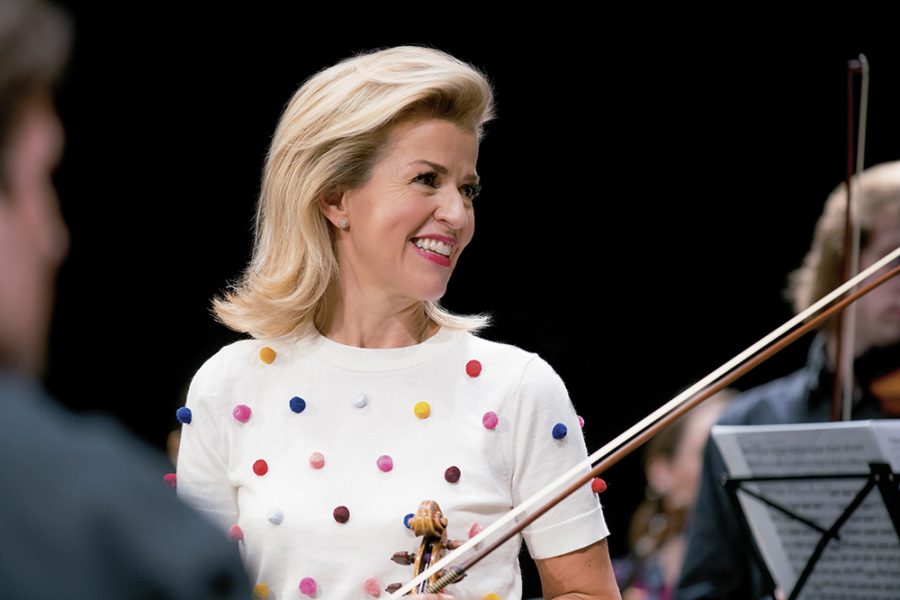Anne-Sophie Mutter first burst onto the musical scene with the help of Herbert Von Karajan at the age of thirteen, and of course she has been in Edinburgh before for the Festival, but it is still a major coup to get her to star with the RSNO tonight. As she explains in the preconcert talk, it was originally the idea to perform Penderecki’s second violin concerto with the composer conducting, but at 85, he is getting too frail to travel, but RSNO Music Director, Thomas Søndergård, is a very able substitute.
Mutter soon shows she is very much in charge of the concerto, which was written for her and she first performed in 1995. Penderecki is a composer who lived through the political changes in Poland, which while under Stalinist influences, expected patriotic socialist realist music. However, in the 1950s, a cultural thaw allowed the development of more contemporary music, and Penderecki was at the forefront of this movement. By the time the second violin concerto was composed (1991 – 95), Poland was very much part of the west European world.
His second concerto shows this development: yes, it is contemporary and challenging at forty minutes long and in only one movement, but it also retains links to earlier European composers. As Penderecki explains in the programme notes: “what I was doing at that moment, was effectively assembling and confronting certain experiences of our century: Stravinsky and Bruckner, Shostakovitch and Bartók, and late Mahler“. Mutter shows all these musical heritages, and inhabits this work: it is a truly magical experience. She is greeted with rapturous applause by the very full Usher Hall audience, and responds with a lovely encore by Bach.
After this superb first half, the second part of the concert could be an anticlimax, but then Tchaikovsky’s Fifth Symphony could never be an anticlimax. First performed over 100 years before the Penderecki in 1888, and conducted by the composer, it was radical at the time and remains one of the orchestral glories of the late romantic period.The symphony is united by a musical motto, first issued by the clarinets in the first movement and then by the strings, and in the second slow movement by a lovely horn solo. The third movement is really dance music, and of course Tchaikovsky was a great ballet composer. The final movement is fast and furious with a series of crescendos, some almost false, but Søndergård holds the audience in control with his arm movements as he does the orchestra. It is a great performance of a mighty work, and reminds us yet again of the uniqueness of live music.
